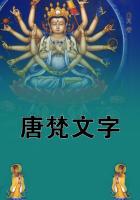Yet Mill was aiming at an obvious truth.As men advance intellectually,intellectual pleasures will clearly fill a larger space in their ideal of life.The purely sensual pleasures will have their value as long as men have bodies and appetites;but they will come to have a subordinate place in defining the whole ends of human conduct.The morality of the higher being will include higher aspirations.We have then to inquire,In what sense is a 'felicific calculus'possible or required?The moral rule is,as Mill holds,a statement of certain fundamental conditions of social life,giving,as he puts it,the 'ground-work'upon which all social relations are built up.This again supposes essentially a society made of the most varying elements,poets and men of science,philosophers and fools,nay,according to him,including both Socrates and the pig.In criticising Whewell,for example,he quotes (79)with most emphatical approval that 'admirable passage'in which Bentham includes animal happiness in his criterion.We are to promote the pig's happiness so far as the pig is 'sentient,'little as he may care for a Socratic dialogue.But if so,the 'greatest happiness'rule must have for its end the conditions under which the most varying types of happiness may be promoted and each kind of happiness promoted according to the character of the subject.And in point of fact,the actual moral rules,'Love your neighbour as yourself,'be truthful,honest,and so forth,do not as such define any special type of happiness as good.They assume rather that happiness,as happiness,is so far good;and that we ought to promote the happiness of others if our action be not objectionable upon some other ground.This indicates a really weak point of the old Utilitarianism,which Mill was trying to remedy.If,as Bentham would seem to imply,we are to form Our estimate of happiness simply by accepting average estimates of existing human beings,we shall be tempted to approve conduct conducive to the lower kinds of happiness alone.I should reply that this is to misunderstand the true nature of morality.If morality,as Mill would admit,corresponds essentially to the primary relations of social life,it is defined not by any average estimates of happiness,but by a statement of the conditions of the welfare of the social organism.It states the fundamental terms upon which men can best associate.It gives the fundamental 'social compact'(if we may accept the phrase without its fallacious connotation)implied in an ordered system of society.The happiness of each is good,so far as it does not imply anti-social characteristics.But morality leaves room for the existence of the most varied types of character from the saint to the pig,and aims at producing happiness --not by taking the existing average man as an ultimate unalterable type,but --by leaving room for such a development of men themselves as will alter their character and therefore their views of happiness.As the society progresses the individual will himself be altered,and the type which implies a greater development of intellect,sympathy,and energy come to prevail over the lower,more sensual,selfish,and feeble type.Though happiness is still the ultimate base,the morality applies immediately to the social bond,which contemplates a general development of the whole man and a modification of the elements of happiness itself.Mill,perceiving that something was wanted,makes the unfortunate attempt at supplying the gap by his assumption of an imaginary consensus of the better minds.What is true is that all men may consent to conditions of society which leave a free play to the higher influences:that is,are favourable to the more advanced type with greater force of intellect and richness of emotional power.
Here we return to the old Utilitarian problem:What is the 'sanction'of morality?The 'sanction'can be nothing else than the sum of all the motives which induce men to act morally.What,then,are they?The Utilitarians,starting from the juridical point of view,had a ready answer in the case of positive law.
The sanction,briefly,is the gallows.Law means coercion,and as everybody (with very insignificant exceptions)objects to being hanged,the gallows may be regarded as a sanction of universal efficacy.If the moral law be taken in the same way as implying a rule of conduct to be enforced by an external sanction,the correlative to the gallows was hell-fire.This satisfied Paley,but as the Utilitarians had abolished hell,they were at some loss for a substitute.
Here Mill accepts the principles laid down by his father.He defends the Utilitarians upon the ground that they 'had gone beyond all others in affirming that the motive has nothing to do with the morality of the action,though much with the morality of the agent.'(80)They based morality upon 'consequences,'and the consequences of an action are no doubt independent of the motive.
If I burn a man for heresy,the 'consequences'to him are the same whether my motive be love of his soul or the hatred of a bigot for a free-thinker.To estimate the goodness or badness of an action,we must consider all that it implies.We must inquire whether a society in which heretics are repressed by the stake is better or worse than one in which they are left at liberty;and that cannot be settled by simply asking whether the persecutor is benevolent or malevolent.The purest benevolence may be misguided if it is directed by erroneous belief.The 'sentimentalism,'denounced by Utilitarians,implied refusal to look at consequences,and the justification,for example,of corrupting charity on the ground that it was pleasant to the sympathy of the corrupter.Their especial function was to warn philanthropists that misguided philanthropy might stimulate the greatest evils.















